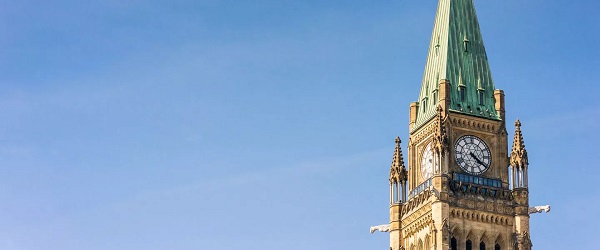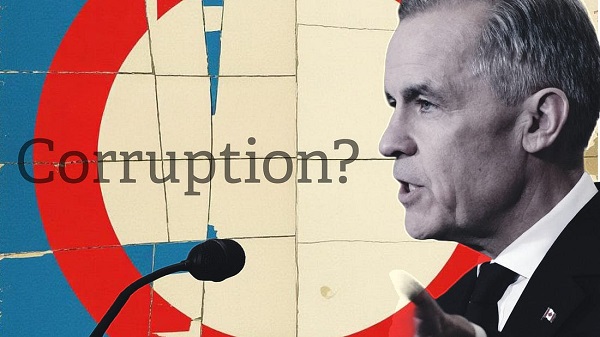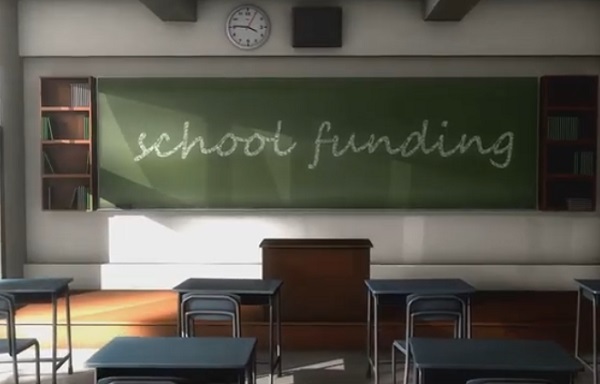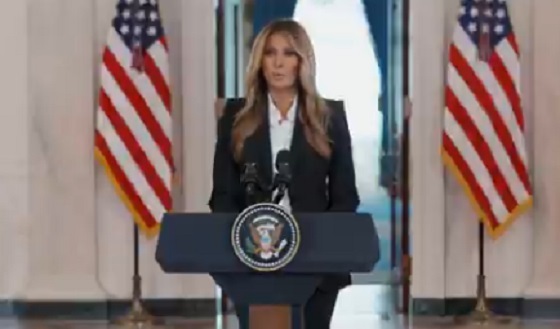Alberta
EXCLUSIVE: Alberta Bill of Rights draft affirms parental authority over children

From LifeSiteNews
A draft version of a forthcoming Alberta Bill of Rights provided to LifeSiteNews includes a provision beefing up parental rights, declaring the ‘freedom of parents to make informed decisions concerning the health, education, welfare and upbringing of their children.’
The United Conservative Party government of the province of Alberta is anticipated to soon introduce a new “Bill of Rights,” a current draft of which includes a provision that would cement parental rights as “God-given.”
LifeSiteNews was recently provided exclusive access to a draft version of the “Alberta Bill of Rights” from a source well connected with the ruling United Conservative Party (UCP).
Included in the draft bill is a section titled, “Freedom of parents to make informed decisions concerning the health, education, welfare and upbringing of their children.”
The text of the draft version, which is still subject to change, reads that the “Government of Alberta, on behalf of its citizens,” must acknowledge that the “freedom of parents to raise their children is sui generis – independent from legislation, not flowing from it – it precedes government.”
“It is a government’s duty to respect that familial boundary until children reach the age of majority. Parents have an obligation to provide for the basic health, education, and welfare of their child as they exercise custody and authority,” reads the bill.
The text then reads that the “state shall not target parents nor interfere with parental rights on the basis of religious or social standing, nor on the basis of fiscal status provided that parents are demonstrably providing for the necessities of their children.”
“No officer or agency of the government, including any subdivisions, shall infringe on a parent’s freedoms except as demonstrably necessary on a case-by-case basis as provided by law, such steps to be narrowly tailored to meet a compelling government interest by the least restrictive means,” it states.
“Remedial provisions shall be provided for the intentional interference of parental freedoms by governments, organizations or individuals.”
The text concludes with a sentence affirming that “Family is in the best interests of a child.”
It is expected that the UCP government in Alberta will introduce its new “Bill of Rights” this fall. The bill contains a slew of pro-freedom proposals, including, as reported by LifeSiteNews, enshrining the “right to life” into law, including from “conception, gestation in the womb.”
The bill also includes, as reported by LifeSiteNews, a section that guarantees each citizen has the “right” to medical “informed consent” as well as the “right” to “refuse vaccinations.”
While the UCP source told LifeSiteNews that the draft version of the bill is subject to change, the source also said it is hoped by all of those who worked on it that the final version will not include many changes.
According to the source, the draft version of the Alberta Bill of Rights was created by a “small group writing it in secret and consulting with lawyers” as well as elected MLAs and cabinet members of the UCP government.
It is not yet clear just how much of the bill has the support of Alberta Premier Danielle Smith, leader of the UCP. She promised last year, as reported by LifeSiteNews, to enshrine into “law” protections for people in her province who choose not to be vaccinated as well as strengthen gun rights and safeguard speech by beefing up the provincial Bill of Rights.
She has also said that parents should be primary caregivers of their children, and earlier this year announced what is the strongest pro-family legislation in Canada, protecting kids from life-altering so-called “top and bottom” surgeries as well as other forms of transgender ideology.
However, Smith’s view on the traditional nuclear family is at odds with the views of many conservatives, including many who support the UCP. As reported by LifeSiteNews last month, Smith noted, in a wide-ranging interview with Jordan Peterson, that conservatives should “modernize” their view of what the nuclear family looks like, including homosexuals “couples” seeking to obtain children.
Alberta
Diploma Exams Affected: No school Monday as ATA rejects offer of enhanced mediation

Premier Danielle Smith, Minister of Finance Nate Horner, and Minister of Education Demetrios Nicolaides issued the following statement.
“Yesterday, the Provincial Bargaining and Compensation Office wrote to the Alberta Teachers’ Association (ATA) and formally requested an agreement to enter an enhanced mediation process.
“This process would have ensured that students returned to the classrooms on Monday, and that teachers returned to work.
“Negotiating would have continued with the ATA, Teachers’ Employer Bargaining Association (TEBA) and a third-party mediator to propose a recommended agreement.
“We are very disappointed that the Alberta Teachers’ Association refused this offer. Teachers and students should also be disappointed.
“PBCO made this offer to the ATA because the union has not made a reasonable offer and this strike is impacting students. Alberta’s government is trying to put kids first and bring an end to this strike.
“The offer of enhanced mediation provided a clear path to ending it.
“We want the same things as the ATA: More teachers. More pay for teachers. More educational assistants. And more classrooms.
“This strike has gone on too long and we are extremely concerned about the impact it is having on students.
“We are willing to consider further options to ensure that our next generation gets the world-class education they deserve. After about three weeks, a strike of this nature would reach the threshold of causing irreparable harm to our students’ education.
“The ATA needs to do what is right for its members, and for all Alberta students.
“If it refuses to do so, we will consider further options to bring this strike to an end.”
Diploma exam update
November diploma exams will be optional for students.
With instructional time in schools disrupted due to the teacher strike, the November 2025 diploma exams will now be optional for students. Students who wish to write a diploma exam may request to do so, and their school boards will accommodate the request.
The optional diploma exams apply to all schools provincewide. These exams will still take place on the currently scheduled dates.
Students who choose not to write the November diploma exams can still complete their courses and graduate on time. Their final grade will be based entirely on the school-awarded mark provided by their teacher.
Choosing not to write the November diploma exams will not affect a student’s ability to apply to, be accepted by, or attend post-secondary institutions after graduation.
No changes have been made to the January and June diplomas and provincial achievement tests.
Quick facts
- Students are automatically exempted from writing the November diploma exams but can request to write them.
- School boards must allow the student to write the diploma exam if requested.
Alberta
Alberta taxpayers should know how much their municipal governments spend

From the Fraser Institute
By Tegan Hill and Austin Thompson
Next week, voters across Alberta will go to the polls to elect their local governments. Of course, while the issues vary depending on the city, town or district, all municipal governments spend taxpayer money.
And according to a recent study, Grande Prairie County and Red Deer County were among Alberta’s highest-spending municipalities (on a per-person basis) in 2023 (the latest year of comparable data). Kara Westerlund, president of the Rural Municipalities of Alberta, said that’s no surprise—arguing that it’s expensive to serve a small number of residents spread over large areas.
That challenge is real. In rural areas, fewer people share the cost of roads, parks and emergency services. But high spending isn’t inevitable. Some rural municipalities managed to spend far less, demonstrating that local choices about what services to provide, and how to deliver them, matter.
Consider the contrast in spending levels among rural counties. In 2023, Grande Prairie County and Red Deer County spent $5,413 and $4,619 per person, respectively. Foothills County, by comparison, spent just $2,570 per person. All three counties have relatively low population densities (fewer than seven residents per square kilometre) yet their per-person spending varies widely. (In case you’re wondering, Calgary spent $3,144 and Edmonton spent $3,241.)
Some of that variation reflects differences in the cost of similar services. For example, all three counties provide fire protection but in 2023 this service cost $56.95 per person in Grande Prairie County, $38.51 in Red Deer County and $10.32 in Foothills County. Other spending differences reflect not just how much is spent, but whether a service is offered at all. For instance, in 2023 Grande Prairie County recorded $46,283 in daycare spending, while Red Deer County and Foothills County had none.
Put simply, population density alone simply doesn’t explain why some municipalities spend more than others. Much depends on the choices municipal governments make and how efficiently they deliver services.
Westerlund also dismissed comparisons showing that some counties spend more per person than nearby towns and cities, calling them “apples to oranges.” It’s true that rural municipalities and cities differ—but that doesn’t make comparisons meaningless. After all, whether apples are a good deal depends on the price of other fruit, and a savvy shopper might switch to oranges if they offer better value. In the same way, comparing municipal spending—across all types of communities—helps Albertans judge whether they get good value for their tax dollars.
Every municipality offers a different mix of services and those choices come with different price tags. Consider three nearby municipalities: in 2023, Rockyview County spent $3,419 per person, Calgary spent $3,144 and Airdrie spent $2,187. These differences reflect real trade-offs in the scope, quality and cost of local services. Albertans should decide for themselves which mix of local services best suits their needs—but they can’t do that without clear data on what those services actually cost.
A big municipal tax bill isn’t an inevitable consequence of rural living. How much gets spent in each Alberta municipality depends greatly on the choices made by the mayors, reeves and councillors Albertans will elect next week. And for Albertans to determine whether or not they get good value for their local tax dollars, they must know how much their municipality is spending.
-

 International1 day ago
International1 day agoPoland’s president signs new zero income tax law for parents with two children
-

 International1 day ago
International1 day agoAustralian territory bans men from women’s prisons in national first
-

 COVID-191 day ago
COVID-191 day agoFreedom Convoy leader Tamara Lich says ‘I am not to leave the house’ while serving sentence
-

 Business23 hours ago
Business23 hours agoFord’s Whisky War
-

 Business2 days ago
Business2 days agoFederal Budget 2025: A responsible media would ensure Canadians know about the dismal state of federal finance
-

 Business2 days ago
Business2 days agoCanada has an energy edge, why won’t Ottawa use it?
-

 Business2 days ago
Business2 days agoEthics on Ice: See You Next Year
-

 Alberta2 days ago
Alberta2 days agoDiploma Exams Affected: No school Monday as ATA rejects offer of enhanced mediation








